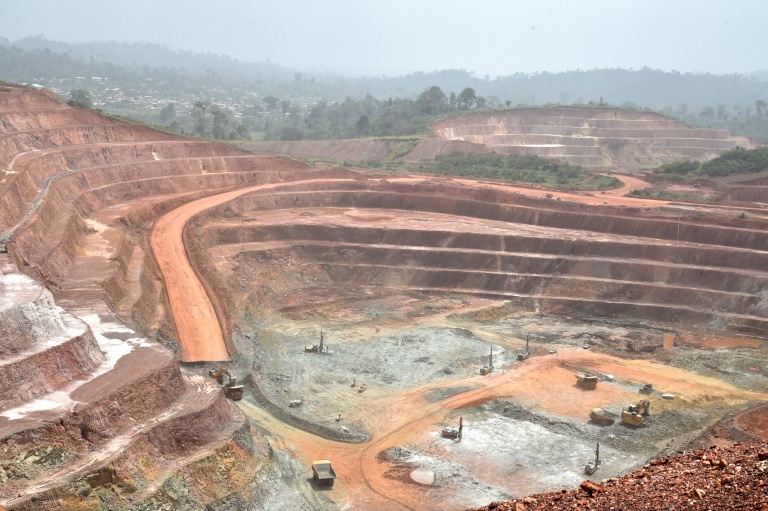Man City boost top five bid, Aston Villa thrash in-form Newcastle
Villagers in central Ivory Coast are savouring a rare victory after reaching a deal with a Canadian gold mine operator following a four-year battle for compensation that at times turned violent.
Since it began operating in 2014, the Agbaou gold mine — which covers an area of 334 square kilometres (130 square miles), or nearly 10 times that of New York’s Central Park — has been hit by demonstrations by local people angered that they had not received money for the loss of lands used for agriculture.
Protesters staged a string of activities that braked activity at the mine, an open-cast facility run by Endeavour Mining that extracts around three tonnes of gold per year.
With the authorities keen to develop the mining sector, the standoff eventually led to talks which culminated in a deal on Thursday.
Under it, the mine agreed to offer employment to around 100 young people and pay out an unspecified sum.
“I am happy,” said Allalo Grah Jephte, a representative for the youth of Agbaou, which lies about 200 kilometres (120 miles) northwest of the coastal city of Abidjan, Ivory Coast’s economic capital.
– A costly dispute –
The dispute arose when work began on the mine in 2012. When the site became operational two years later, it sparked demonstrations which at times turned violent with locals frequently blocking access to the site.
The deadlock cost the company 600 million CFA francs ($1.12 million, 92 million euros) annually, Endeavour said.
In its defence, it said it had paid out a total of 6.7 billion CFA francs in compensation over the previous five years, earmarked to more than 1,100 farmers and landowners.

Operated Canada’s Endeavour Mining, the Agbaou gold mine covers an area of 334 square kilometres (130 square miles)
The remaining 1.5 million was given to a local development committee to finance roads, education and health infrastructure, Endeavour said.
But local residents say they never saw a penny of this money — and their resentment quickly turned into protest.
In order to draw a line under the standoff, Endeavour Mining and its affiliates working at Agbaou and another mine in the western village of Ity held two days of talks involving the local authorities, traditional elders and groups representing women and young people.
According to the document outlining details of the agreement, both sides agreed to “end all forms of violence and intimidation” through the establishment of a mechanism “for direct communication in order to identify possible crises and tensions between the mines and local stakeholders”.
– ‘Jobs for our children’ –
“It’s a first, we want to develop a social dialogue… which aims to avoid misunderstandings and conduct likely to block… the mine’s activity,” said Daniel Yai, who heads Endeavour’s operations in Ivory Coast.
“Blocking the mines creates problems for everyone.”
Although Endeavour did not comment on the specifics of the deal, Jephte said the firm had agreed to take on and train around 100 local youths.
Further financial payouts are also included in the deal, but the sum has not been disclosed.
Until now, residents from the Agbaou area have only made up about a third of the 900 or so people employed directly or indirectly by the mine, company figures show.
Until now, local residents have only made up a third of the 900 or so people employed directly or indictly by Ivory Coast’s Agabao mine
Last year, Jephte spent six months in prison along with two others for allegedly instigating the protests, a charge they deny.
The new consultation framework would help bring about “the training of young people to work in the mines,” he said.
Koffi Amenan, who heads the local women’s association, also welcomed the plans to offer much-needed employment to the area’s youngsters.
“Because the mine took over our agricultural land, we don’t have any more farming jobs,” she said.
Industrial production of gold in Ivory Coast reached 25 tonnes in 2017, up two percent on the previous year, government figures show but further promising deposits are still in development.
In a country where cocoa remains the main export commodity, the mining industry accounts for just three percent of gross domestic product today.
President Alassane Ouattara wants to exploit the country’s huge mining potential, and although only gold and manganese are industrially produced, there are also deposits of iron, nickel, bauxite and copper in its soil.
Download our app